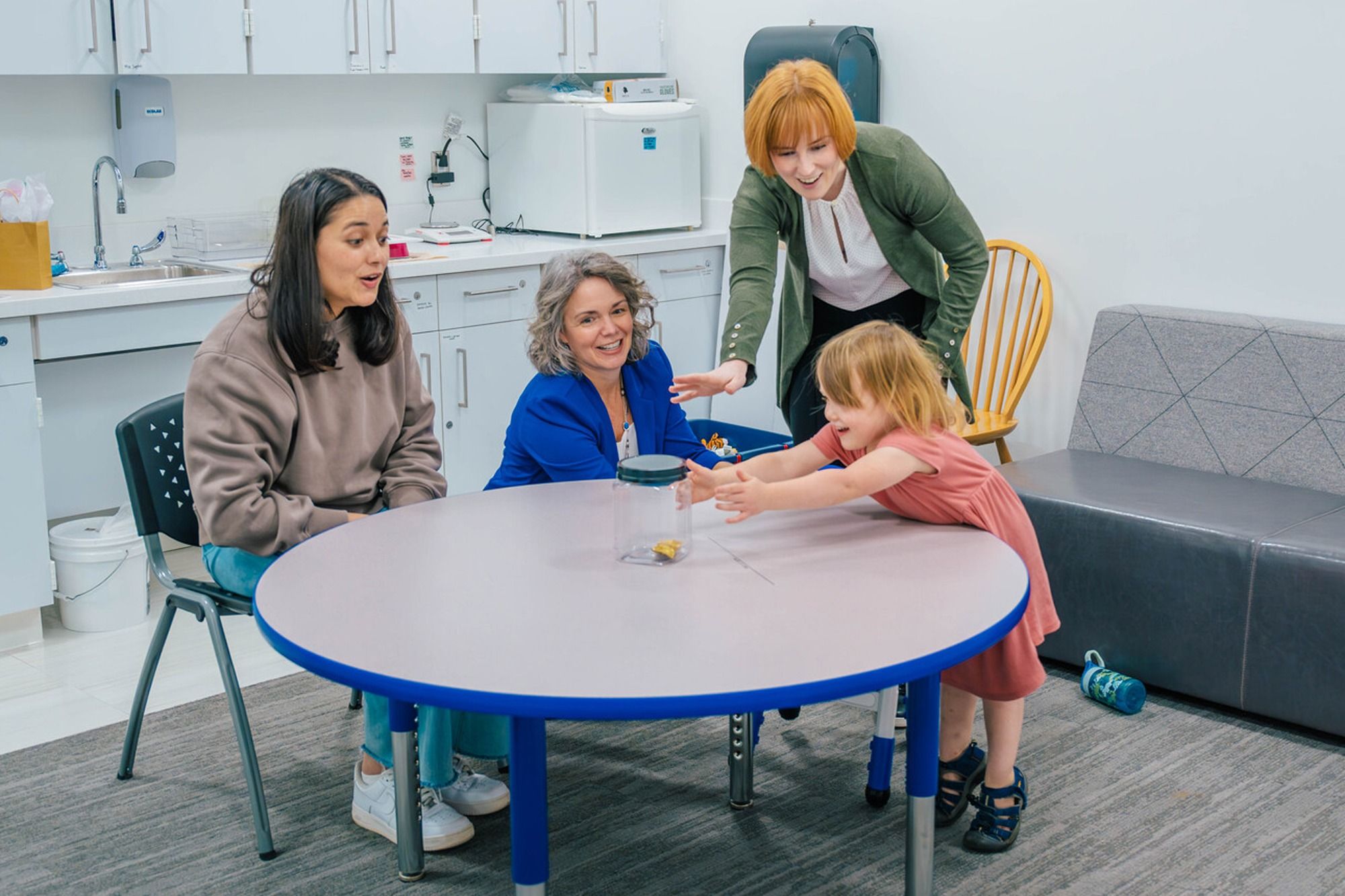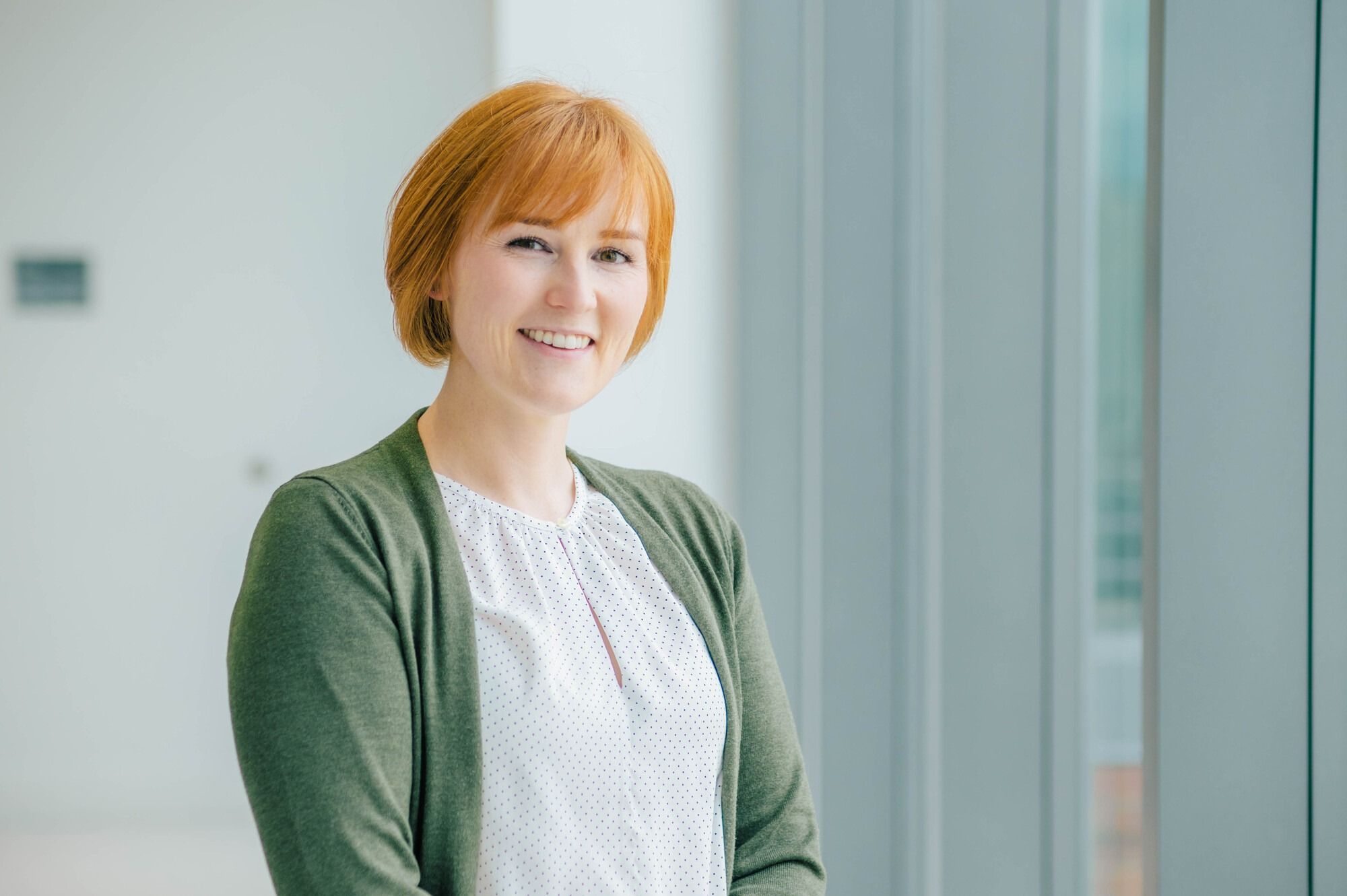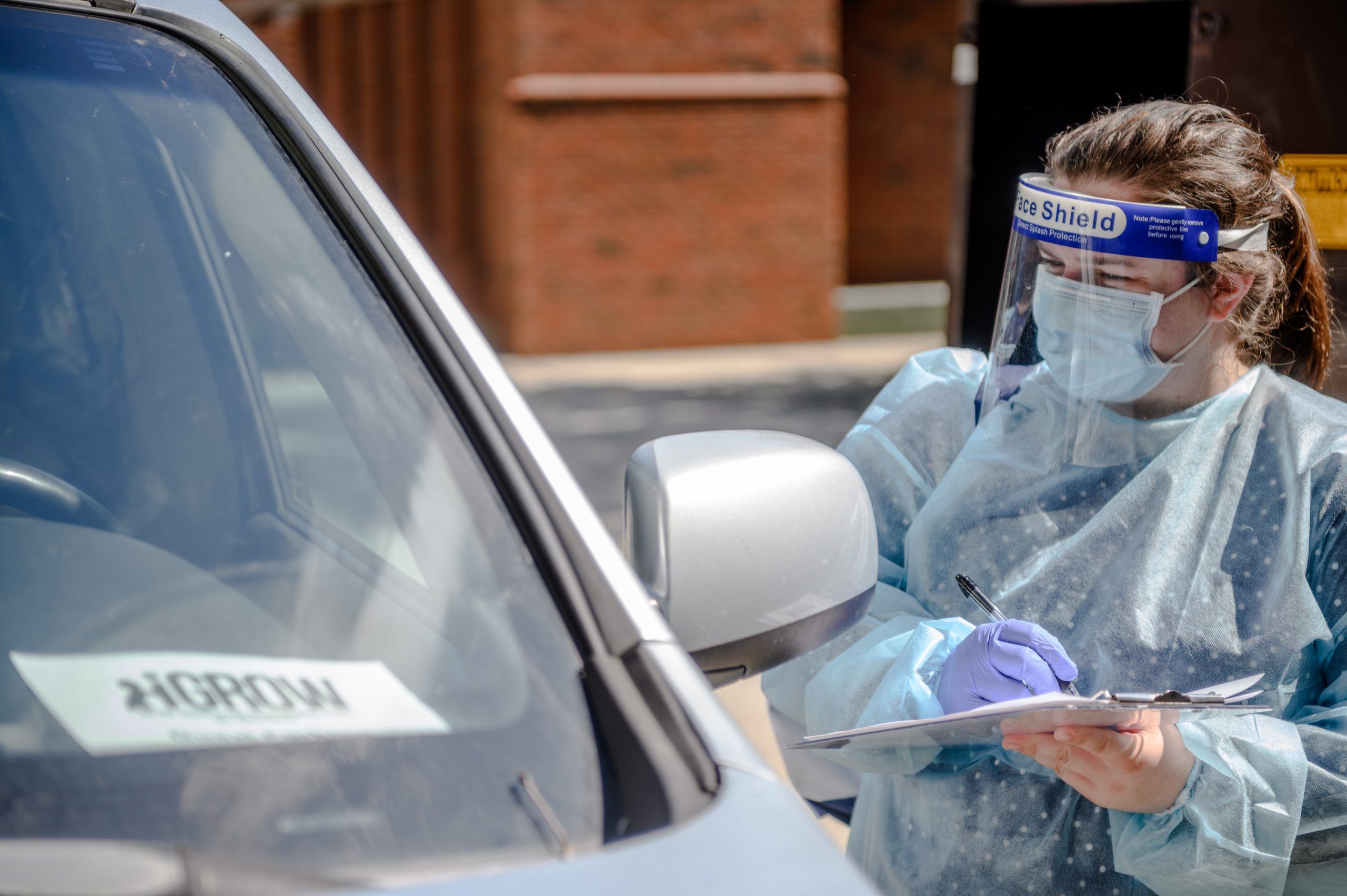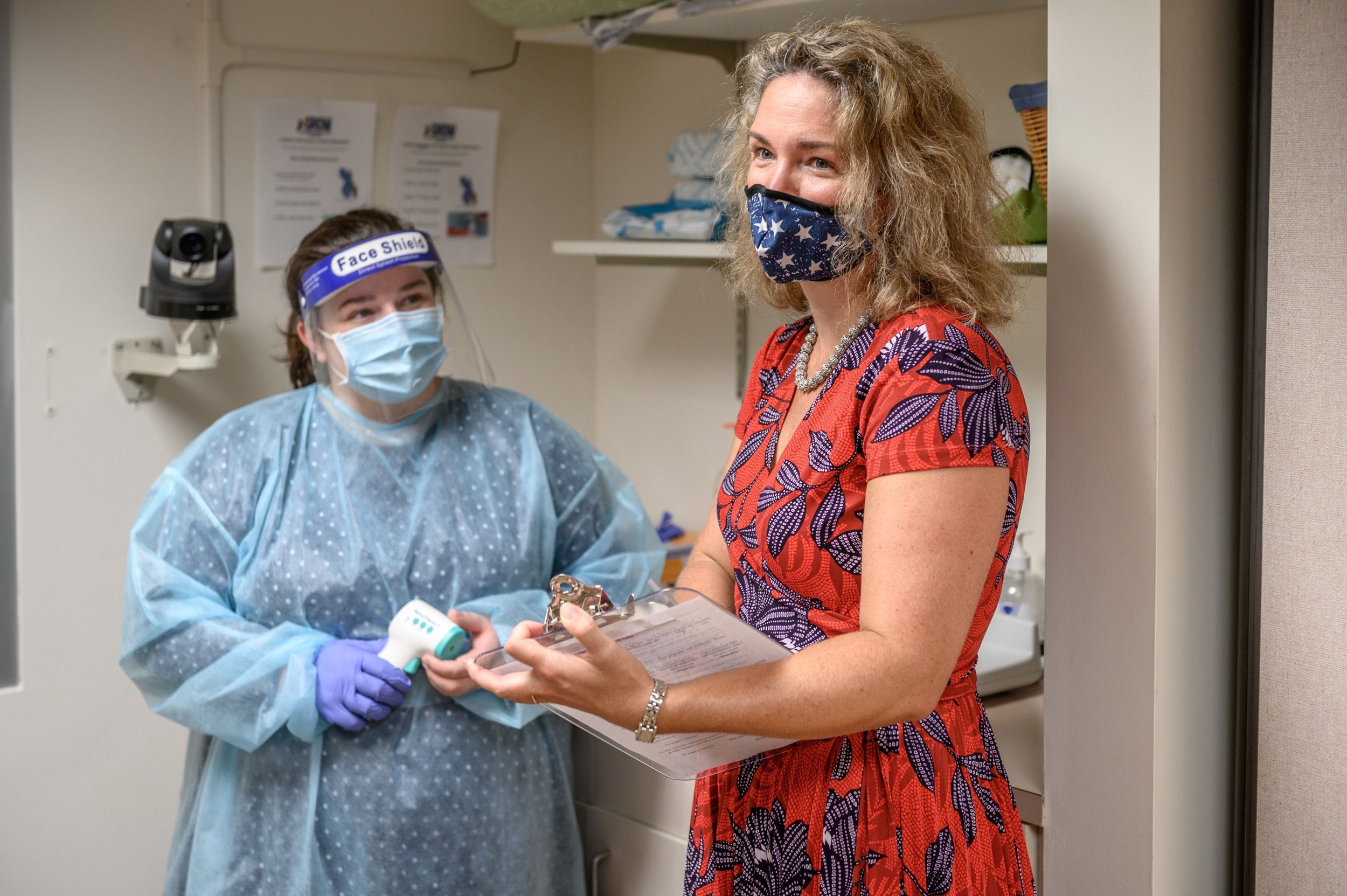COVID impacts on families
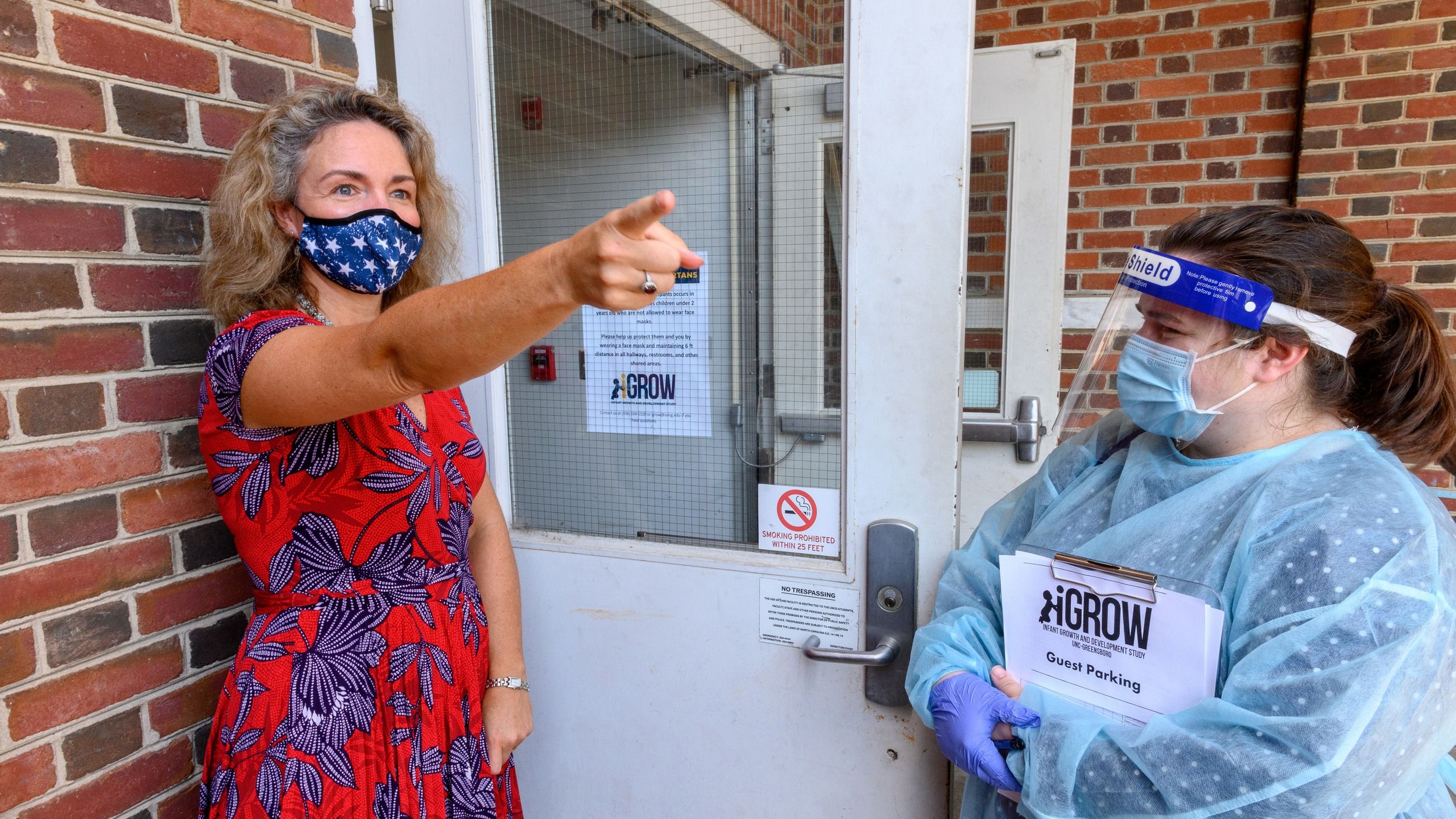
COVID impacts on families
Dr. Kierra Sattler understands firsthand how the global pandemic changed the landscape of motherhood.
In 2020, she had a two-year old son and had just given birth to her daughter. “Having a young child at that point in time made it so salient. It really did change so much,” says the faculty member in human development and family studies.
Sattler has teamed up with Dr. Esther Leerkes and Dr. Cheryl Buehler, members of UNCG’s iGrow child obesity study team, to research how parent and child well-being has been influenced by the COVID-19 pandemic.
“The iGrow study started with a cohort of pregnant women, and the way in which the pandemic coincided with data collection, it ended up with two cohorts of pregnant women – those who were pregnant before and those who were pregnant during COVID,” Sattler explains.
Up to this point, Sattler says, much of the research around this topic didn’t look at the different aspects of the pandemic’s long-term effects on parents or how it impacted their overall well-being, beyond some preliminary evidence of adverse effects on the behavioral and mental health of both children and adults.
“I think researchers did the best they could, but given the holistic multisystem nature of the pandemic, how do you decide what questions are most important if you can only give a very short questionnaire because your subjects are busy balancing well-being, childcare, and elder care all while worrying if it’s safe to go to the grocery store?”
The iGrow study was one of the first studies of its kind to restart data collection following the outbreak of COVID-19. For Sattler, it provided the ideal population for studying multidimensionality in the pandemic.
Families in the iGrow study come from all income levels, across the socioeconomic spectrum, and offer a racially diverse sample. “We’re able to see differences in experiences in the pandemic across different family configurations and different levels of resources,” Sattler says.
In a testament to the need for these insights, the researchers secured $1.6 million in NIH funding last year.
With the funding, they are reaching out to iGrow participants and conducting interviews with parents and coparents to create timelines of COVID’s impacts on these families. Their Covid And Resilience Experiences Survey project is called “iGrowCARES.”
A Growing Effort
An ambitious child obesity study following kids from the womb to toddlerhood expands into the preschool years, with a new $3M NIH grant. The robust iGrow data set has also seeded studies into heart health and the pandemic.
Images 1, 2: Sattler and her now-toddler daughter demonstrate iGrow tests with grad student Shourya Negi and Leerkes. 3, 4: The child obesity study paused at the onset of the pandemic, but the team resumed data collection in July 2020, with stringent COVID-safe procedures based on those launched by pediatric offices.
In order to get a bigger picture of the pandemic’s influence, Sattler’s team came up with questions related to economic outcomes, caregiving responsibilities, and physical and mental health. To include a whole family perspective, the team is also interviewing co-parents, which could include a partner not biologically related to the child or a grandparent.
“We have so much rich info from iGrow on children at birth, at two months, six months, one year, and two years,” she says. “Now we can specifically go back and add contextual information about COVID and how that was influencing the whole family.”
Sattler’s goal for the study is to provide information for public health professionals that can be used for future pandemics and multi-system disasters.
“I am hoping that by collecting this really rich, in-depth longitudinal information on the pandemic and how it influenced parents and children, we will be able to learn valuable information to support families in the future.”
